Increasing Vehicle Production
The Automotive Fuel Tank Market is experiencing a surge in demand due to the rising production of vehicles across various segments. As manufacturers ramp up production to meet consumer demand, the need for fuel tanks is expected to grow correspondingly. In 2025, the automotive sector is projected to produce over 90 million vehicles, which directly correlates with the demand for fuel tanks. This increase in vehicle production is driven by factors such as urbanization, rising disposable incomes, and a growing preference for personal mobility. Consequently, the Automotive Fuel Tank Market is likely to witness substantial growth as manufacturers seek to supply fuel tanks that meet the evolving needs of modern vehicles.
Rising Demand for Electric Vehicles
The Automotive Fuel Tank Market is also being influenced by the rising demand for electric vehicles (EVs). As consumers increasingly shift towards EVs, traditional fuel tank manufacturers are exploring opportunities to diversify their product offerings. While the immediate impact on fuel tank demand may seem negative, the transition to hybrid vehicles, which still require fuel tanks, presents a unique opportunity for growth. In 2025, it is projected that hybrid vehicles will account for a significant share of the automotive market, thereby sustaining the demand for fuel tanks. This shift indicates that the Automotive Fuel Tank Market must adapt to changing consumer preferences while remaining relevant in an evolving automotive landscape.
Regulatory Compliance and Safety Standards
The Automotive Fuel Tank Market is significantly influenced by stringent regulatory compliance and safety standards imposed by governments worldwide. These regulations are designed to enhance vehicle safety and reduce environmental impact. For instance, regulations regarding fuel tank design, materials, and installation are becoming increasingly rigorous. In 2025, it is anticipated that compliance with these standards will drive innovation in fuel tank technology, leading to the development of safer and more efficient products. Manufacturers are likely to invest in research and development to ensure their fuel tanks meet these evolving standards, thereby propelling growth in the Automotive Fuel Tank Market.
Technological Advancements in Fuel Tank Design
The Automotive Fuel Tank Market is benefiting from rapid technological advancements in fuel tank design and manufacturing processes. Innovations such as the use of advanced materials, improved manufacturing techniques, and the integration of smart technologies are enhancing the performance and efficiency of fuel tanks. For example, the introduction of composite materials is enabling the production of lighter and more durable fuel tanks, which can improve vehicle fuel efficiency. In 2025, it is expected that these technological advancements will continue to shape the Automotive Fuel Tank Market, as manufacturers strive to create products that meet the demands of modern vehicles while adhering to environmental standards.
Focus on Fuel Efficiency and Emissions Reduction
The Automotive Fuel Tank Market is under pressure to enhance fuel efficiency and reduce emissions in response to consumer demand and regulatory requirements. As automakers strive to produce vehicles that consume less fuel and emit fewer pollutants, the design and functionality of fuel tanks are evolving. Innovations aimed at improving fuel efficiency, such as optimizing tank shapes and sizes, are becoming increasingly important. In 2025, it is anticipated that the Automotive Fuel Tank Market will see a rise in demand for fuel tanks that contribute to overall vehicle efficiency, aligning with global efforts to combat climate change and promote sustainable transportation solutions.
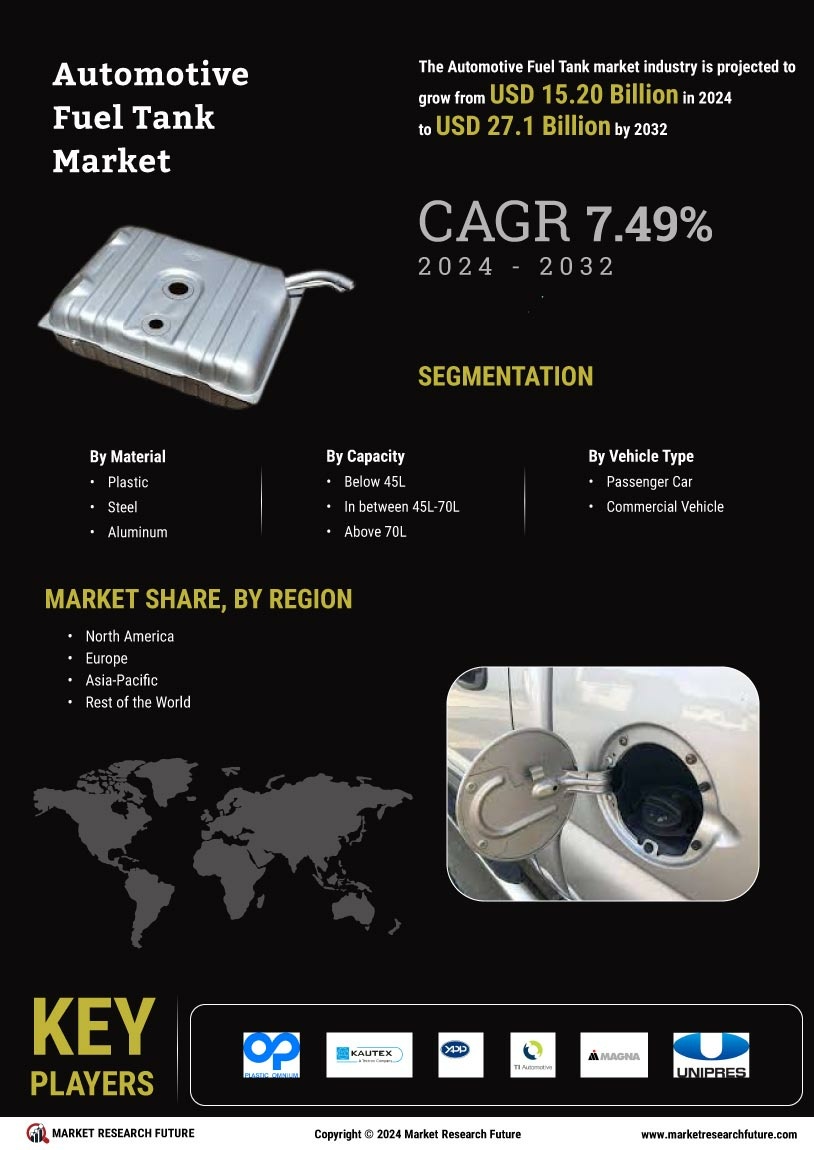

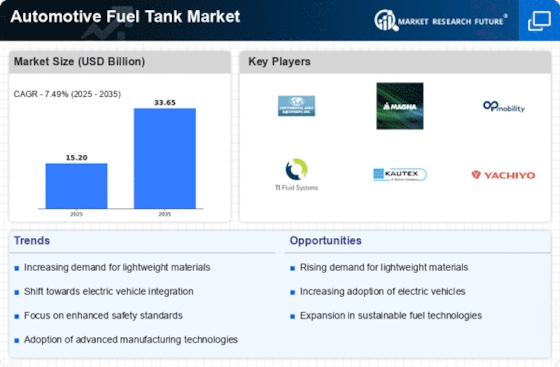

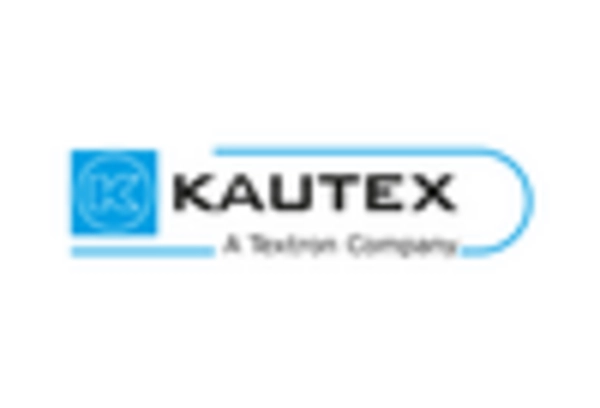
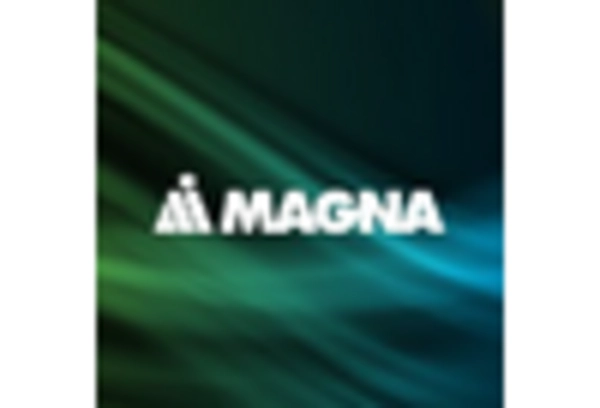
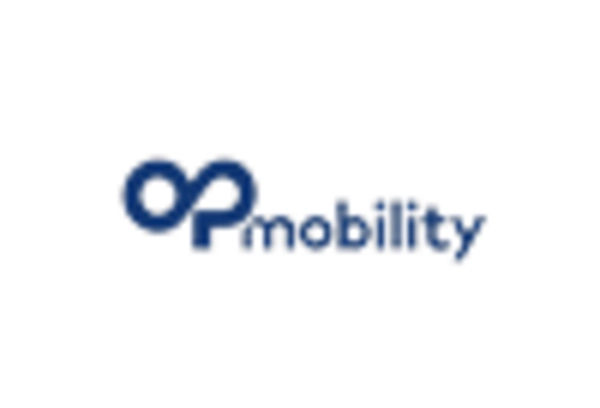
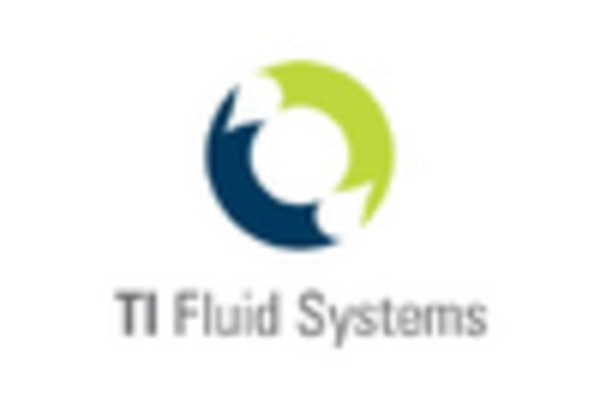
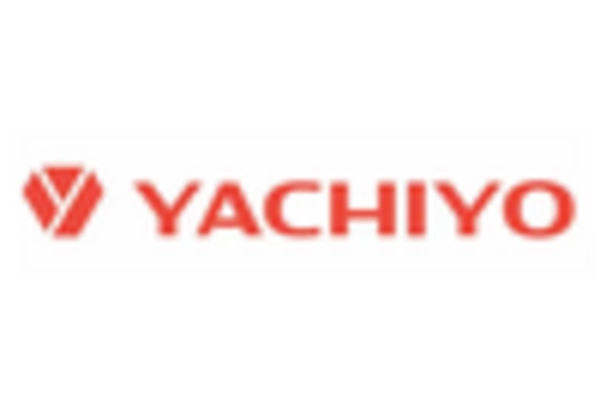








Leave a Comment